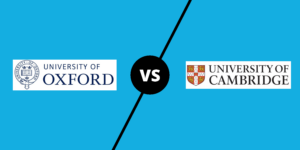Preparing for Your University Interview
Preparing for Your University Interview
Firstly, congratulations on making it this far! Being selected for an interview is an honour and you should be proud of your achievements. Nonetheless, your work isn’t done yet and you will have to prepare for this important step in your university career.
Interviews are a common occurrence in the application process of many British degrees and universities. Subjects that typically ask candidates to interview include Medicine, Nursing, Dentistry, Education, Music and Art & Design. Oxbridge won’t offer candidates a place without an interview, regardless of the course. Additionally, University College London and Imperial College London will often invite candidates for an interview.
How to prepare
It is crucial to prepare properly before heading into an interview. You can do this by:
- Planning any necessary travel
- Practicing commonly asked interview questions
- Brainstorming questions you can ask
- Reading through your personal statement multiple times
- Thoroughly researching the course, any new developments in it and the university itself
- Carrying out mock interviews
- Getting a good night’s sleep (this is the most important!)
What to wear and take with you
Whether your interview is in-person or virtual, you should always dress business casual. Wear smart pants and an ironed shirt or blouse, and you don’t need to wear a suit and tie.
You should always bring your portfolio with you if applying for an art or design degree. However, only bring size-appropriate artwork with you. If you have created several large and noteworthy pieces, you can take pictures of them and show the pictures instead. Additionally, it is always useful to bring a notepad and pen regardless of the subject you applied for.
Example interview questions
Practicing several commonly asked questions during university interviews can and will greatly decrease your anxiety for the actual event. Furthermore, by planning your answers you will come across as a well-prepared and confident individual for the programme. Some example questions include:
- Why do you want to study this subject?
- Why did you choose this university?
- What did you enjoy about your A-levels/IB/secondary school subjects?
- How would you describe yourself?
- What are your main interests?
- What are your strengths and weaknesses?
- What achievement are you most proud of?
- What are your career plans?
- Why should we offer you a place?
You may also be asked subject specific questions, for example, you may be required to solve a Maths equation if you applied for a Maths degree. You should also be prepared to answer any questions about content in your personal statement. The more you practice, the better you will be!
Questions you can ask
Remember, an interview is a two-way process and by asking questions you demonstrate that you are an engaged and interested student. It’s also your chance to make sure the course and the university are a right fit for you.
For instance, you could ask the course tutor about the programme’s teaching methods, expectations and requirements for each year of the degree, and the main characteristics looked for in a student, as well as any tips on how to succeed on this particular course. It’s also a great time to ask your interviewer if you have answered all their questions satisfactorily or whether they would like clarification on anything. By doing so you underscore your commitment to the subject and university.
What are interviewers looking for in an interviewee?
Interviewers want to know who you are and what you can offer to the university. They want to know if you are a right fit for the course and if you will be able to succeed in it. University degrees are much tougher than secondary school subjects, so the tutors need to make sure you will be able to hack it.
You should demonstrate the characteristics of passion, commitment, interest and potential in your interview answers.
How can TopCourses help?
We are able to provide exclusive university practice interviews to ensure that you are suitably prepared for the real thing. To find out more about our services and what we can do for you, book a free consultation today!






